 |
| The private economic sector currently contributes nearly 60% of total social investment capital and more than 30% of the state budget. |
Speaking at the workshop, Deputy Director of the Department of Private Enterprise and Collective Economy Development ( Ministry of Finance ), Ms. Trinh Thi Huong said that the journey of nearly 40 years of innovation has marked a resilient, dynamic Vietnam that is always eager to develop with very important contributions from the private economic sector, with about 40 thousand enterprises, about 5 million individual business households, the private economic sector is currently contributing about 51%, more than 30% of the state budget, about 82% of the total number of workers, nearly 60% of total social investment capital.
“Therefore, building a comprehensive financial ecosystem for SMEs is extremely necessary in the current context when the role of the private economic sector is increasingly important in economic development. When businesses have access to capital quickly, transparently and diversely, they will have more motivation to invest in technological innovation, expand production and business and create more added value for society,” Ms. Trinh Thi Huong emphasized.
However, the private economy still has many shortcomings and limitations, facing many barriers that hinder development, unable to break through in scale and competitiveness, and unable to meet the requirements of being the core force of the country's economy. About 98% of the total number of enterprises are micro, small and medium-sized, facing many difficulties in accessing resources, especially credit capital, land, resources, science and technology, digital transformation and high-quality human resources.
Among them, access to finance is always the most difficult problem, especially for SMEs in Vietnam. The objective reason is that the world and domestic economic situation has many complicated developments, containing many unstable factors. The production and business activities of SMEs are greatly affected by common difficulties. Credit institutions are increasingly promoting the application of risk management standards according to international practices, requiring increasingly high transparency of information, finance, and collateral, so it is impossible to "lower standards" on credit conditions. Meanwhile, many businesses often have poor transparency in financial and management information, lack collateral, and lack feasible business plans; the capital needs are mainly medium and long term to invest in fixed assets with large values compared to the scale...
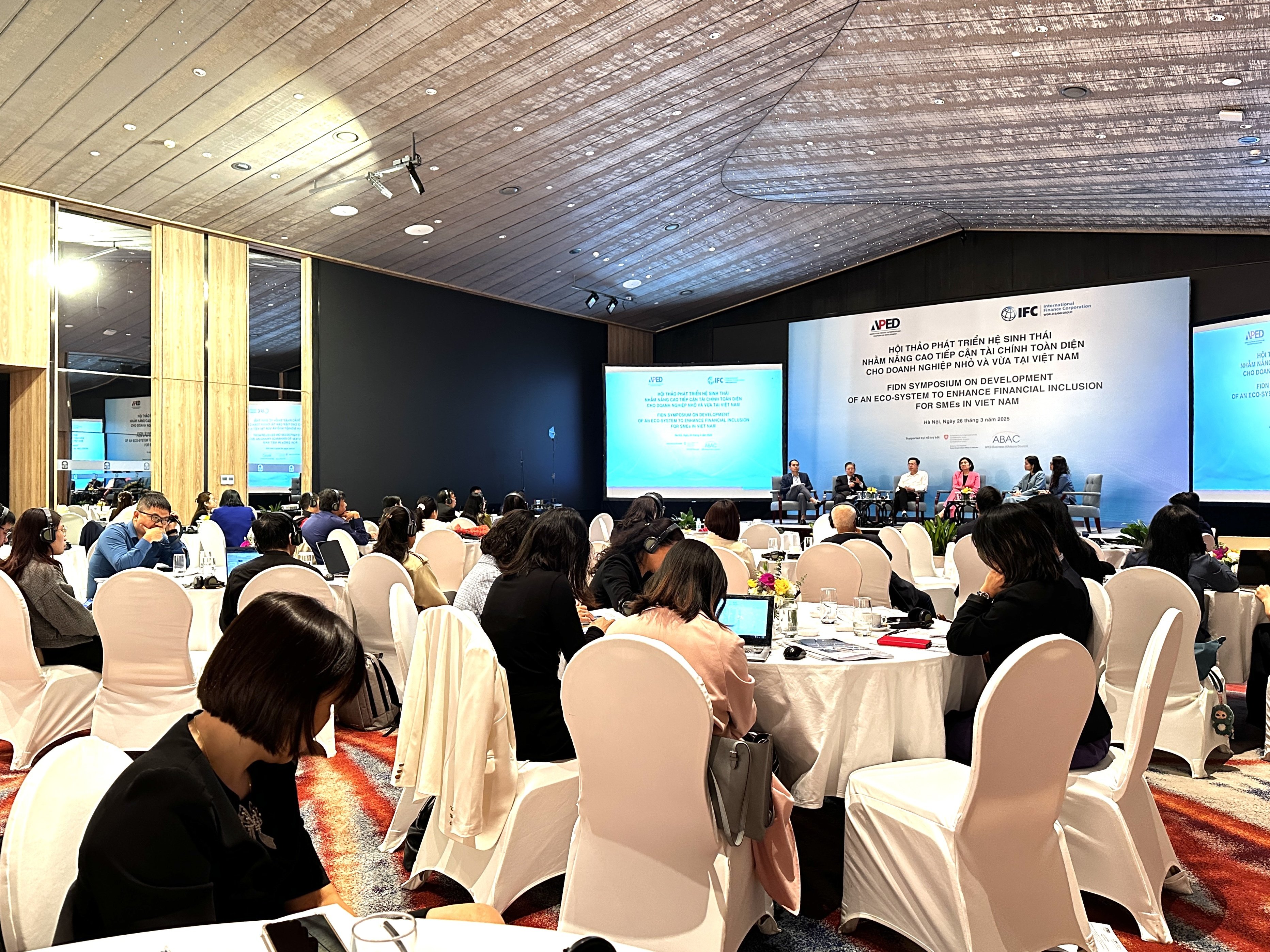 |
| Overview of the Workshop |
To develop the private economic sector, Ms. Le Thi Xuan Quynh, Department of Policy, Business Environment and International Cooperation, Department of Private Enterprise and Collective Economy Development, Ministry of Finance said that enterprises need to diversify suitable types of mortgaged assets (intangible assets, future-formed assets, data); diversify credit supply sources, especially for small and medium enterprises; at the same time, perfect the legal framework for financial companies, expand the list of leased assets... Notably, the policy orientation of the Vietnamese Government proposes to strictly implement the principle that people and enterprises are allowed to do what the law does not prohibit; abandon the mindset of "if you can't manage it, then ban it" and strongly shift from "pre-inspection" to "post-inspection"; perfect the law; at the same time, enforce the law transparently; inspect and have a mechanism to support and protect private investors.
If businesses want to make bold changes, the mechanism also needs to go first to pave the way, said Mr. Tran Anh Quy, Department of Credit for Economic Sectors, State Bank of Vietnam. To orient solutions to increase credit for SMEs, State Bank of Vietnam will study and perfect the credit mechanism; direct credit institutions to simplify internal processes and procedures, deploy credit products for industries and fields suitable for SMEs customers to increase access to and absorption of capital.
Developing an ecosystem to improve comprehensive financial access for SMEs in Vietnam if only the efforts and solutions of the banking sector are not enough. Therefore, Mr. Tran Anh Quy proposed that the Ministry of Finance direct the SME Development Fund to actively implement direct lending activities for SMEs, creating more capital supply channels for SMEs. Review and evaluate the difficulties and obstacles in implementing Decree No. 34/2018/ND-CP of the Government on the establishment, organization and operation of credit guarantee funds for SMEs in the direction of creating conditions to remove difficulties in the operation of current SME Guarantee Funds, consider building a mechanism to create a source of risk reserve funds for the Fund, ensuring that when risks occur, the Fund is able to handle them while still preserving its charter capital.
Not only that, the People's Committees of provinces and cities need to pay attention to providing capital and speeding up the consolidation and improving the operational efficiency of local SME Guarantee Funds. At the same time, continue to coordinate with the banking sector to implement the bank-enterprise connection program to promptly grasp and handle difficulties for enterprises. For the Vietnam Association of SMEs and industry associations, it is necessary to enhance their role and influence as a bridge for SMEs to access credit institutions; a focal point in supporting SMEs with market information, trade promotion activities, exhibitions and protecting the legitimate rights of member enterprises.
For her part, Deputy Director Trinh Thi Huong said that the Department of Private Enterprise and Collective Economic Development, Ministry of Finance is the focal point to help the Ministry's leaders and the Government build the Private Economic Development Project, focusing on clearing bottlenecks, removing institutional barriers; creating a favorable, safe and transparent environment to activate and mobilize maximum resources, exploit potential, intelligence and entrepreneurial spirit; promote innovation and enhance the competitiveness of the private economy, becoming the most important driving force for economic development.
At the workshop, leading experts, representatives of state agencies, experts, banks, businesses and business associations made multi-dimensional and in-depth analyses, which are important inputs for state management agencies to perfect more favorable mechanisms and policies to promote the private economic sector to develop quickly, sustainably and effectively.
Source: https://thoibaonganhang.vn/them-dong-luc-cho-dnnvv-tu-he-sinh-thai-tai-chinh-toan-dien-161874.html


![[Photo] Solemn opening of the 1st Government Party Congress](https://vphoto.vietnam.vn/thumb/1200x675/vietnam/resource/IMAGE/2025/10/13/1760337945186_ndo_br_img-0787-jpg.webp)










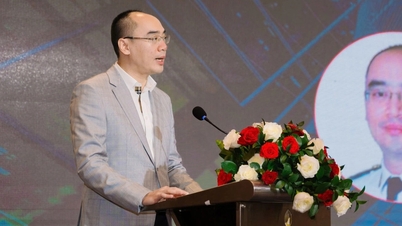
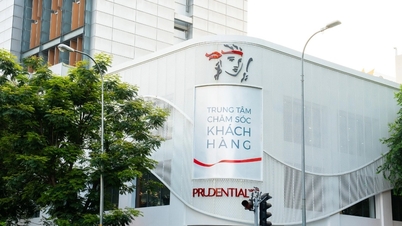











![[Photo] General Secretary To Lam attends the opening of the 1st Government Party Congress](https://vphoto.vietnam.vn/thumb/1200x675/vietnam/resource/IMAGE/2025/10/13/1760321055249_ndo_br_cover-9284-jpg.webp)
























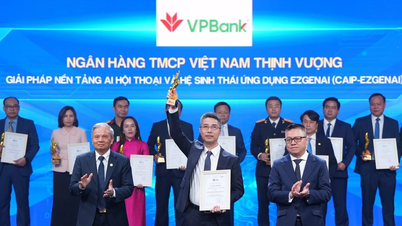




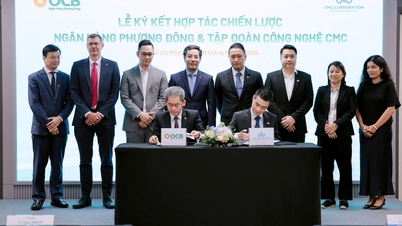

















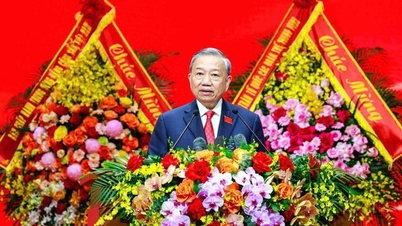

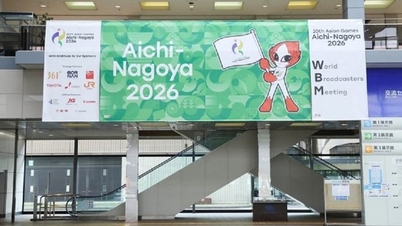


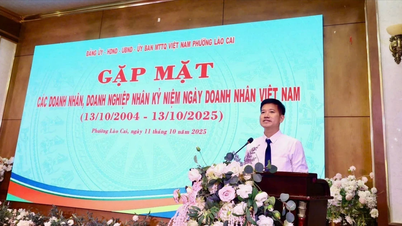






















Comment (0)